URI MGP Newsletter, May 26: June Classes, Rain Gardens, Speaking Skills
In Case You Missed it, May Master Gardener Meeting
Thanks to all who attended our May MG Meeting! Here’s some info to catch up if you were unable to attend. Pollinator working group website: http://www.dem.ri.gov/programs/agriculture/pollinator-working-group.php
Click here for the presentation slides from our May 23 MG Meeting that talk highlight our year to date accomplishments, save the dates for future events progress in developing our land stewardship focus area.
Click here for finance update.
Smithsonian Community of Gardens: http://communityofgardens.si.edu/
Plenty of Color, Not Much Flowering - Gardening with the Masters
 The pool just had to go – that was the sum of Maydith Merz’s vision when she began her garden in the fall of 2003. Originally, there were three terraces, with the pool at the bottom. The demolition damaged the top two, so everything had to be re-designed and rebuilt. This labor of love (and it was literally labor with Madith hauling rocks and then schlepping loam from the front to the back and then down the steps to the bottom tier) took several years to finish, since she was working full-time and doing all the heavy lifting only when the weather was cool.
The pool just had to go – that was the sum of Maydith Merz’s vision when she began her garden in the fall of 2003. Originally, there were three terraces, with the pool at the bottom. The demolition damaged the top two, so everything had to be re-designed and rebuilt. This labor of love (and it was literally labor with Madith hauling rocks and then schlepping loam from the front to the back and then down the steps to the bottom tier) took several years to finish, since she was working full-time and doing all the heavy lifting only when the weather was cool.
This originally vague idea developing into a shade garden, with various hues of greens, sparked by amber, burgundy, white, and lots of variegation. As Maydith puts it, although it has flowering plants, it is not primarily a flower garden and “looks just as nice when there is very little in bloom.”
 One of the most striking features of this lovely yard is the moss pathway, which really, like the rest of the project, just kind of presented itself to her as she worked. Originally, she imagined pebble walkways but the ground was so compacted, the area so shady, that she saw she could not avoid the moss. So she picked out the stones and let the moss take over. As a result her garden gleams.
One of the most striking features of this lovely yard is the moss pathway, which really, like the rest of the project, just kind of presented itself to her as she worked. Originally, she imagined pebble walkways but the ground was so compacted, the area so shady, that she saw she could not avoid the moss. So she picked out the stones and let the moss take over. As a result her garden gleams.
Another property that offers something strikingly original is Catherine Swansen Maxwell’s homestead in Stonington. Originally an 18th century tavern, hehr home still speaks to that earlier era. Hops wind their way up trellises on the the west side of the barn there are chickens, a beehive, and an edible flower garden.
By now, you must be sorry you’ve not bought your ticket for the Gardening with the Masters Tour. It is not too late to mend your lazy ways. You can visit Maydith and Catherine’s gardens and those of 24 other MGs, by going online to web.uri.edu/mastergardener and looking for the RegOnline link. Tickets are $20 and are good for both June 24 and 25. Buy one for yourself and another for a friend. https://web.uri.edu/mastergardener/tour
International Master Gardener Conference Registration Ends Friday
Last call for the International Master Gardener Conference! We have 1,242 people registered, and still have room for more! If you were planning on attending, NOW is the time to register.
Registration is set to end at 11:59pm, PST on Friday, May 26th. Registration page: http://blogs.oregonstate.edu/2017imgc/
Shutterbug Orientation on May 31
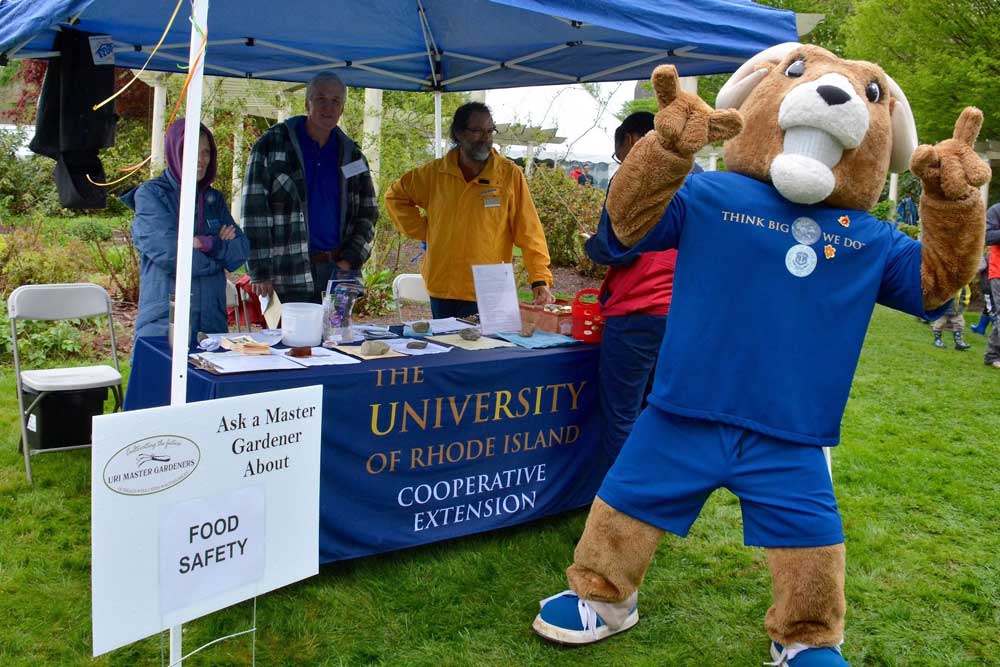 Wednesday, May 31 at 6 pm
Wednesday, May 31 at 6 pm
Building #75, URI East Farm
Yes, “shutterbugs” is back in action! Shutterbugs are the URI Master Gardener volunteers who photograph our various public events and volunteer activities to illustrate our impact. This initiative has been long awaited by many of you. New participants are welcome.
We hope you will be able to attend the initial meeting on Wednesday, May 31 to share news, views, ideas, and expectations. We will also schedule photograph shifts for the Gardening with the Masters Tour. Please sign up in Volgistics.
Please email me with any questions.
Mary Doo [marydoo.com@gmail.com]
RESCHEDULED: Invasive Plant/ Habitat Restoration
Rain Date – June 1, 9am-12pm at Canonchet Farm
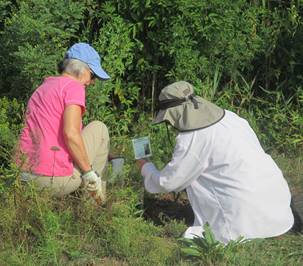 Join Thomas Fortier, Naturalist at the Canonchet Farm habitat restoration project on a guided field study. This class will look at early season strategies and methods for restoring habitat in a range of Southern New England Ecosystems. We will be looking at early season plant species and habitats which have been invaded by common non-native species over the course of the past century. We’ll look at the strategies and methods for restoring the native plant complexes. Each participant will have the chance to try out a range of tools for invasive removal and sharpen their plant identification skills. Dress for field work. A follow-up session in August will address later season control methods. Please log into Volgistics to register, space is limited.
Join Thomas Fortier, Naturalist at the Canonchet Farm habitat restoration project on a guided field study. This class will look at early season strategies and methods for restoring habitat in a range of Southern New England Ecosystems. We will be looking at early season plant species and habitats which have been invaded by common non-native species over the course of the past century. We’ll look at the strategies and methods for restoring the native plant complexes. Each participant will have the chance to try out a range of tools for invasive removal and sharpen their plant identification skills. Dress for field work. A follow-up session in August will address later season control methods. Please log into Volgistics to register, space is limited.
Newport Rain Garden Installation Volunteer Opportunity
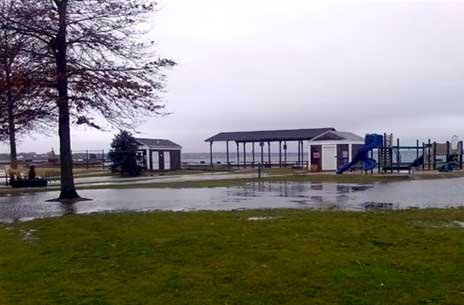 June 3, 9 am – 1 pm
June 3, 9 am – 1 pm
We need help creating a green infrastructure by installing a small rain garden at King Park in Newport. RI State Representative Lauren Carson helped secure a $1000 green infrastructure grant for the installation of this rain garden in order to help educate the public about stormwater runoff along with sea level rise that threatens the park. The public is invited to help URI Master Gardeners with the installation and all will be rewarded with a unique learning opportunity.
If you would like to help with the rain garden, please contact Johanna Vietry. 401.847.9030.

Mighty Pollinators
Sunday, June 4 at 11 am
Prescott Farm, 2009 West Main Road, Middletown
The URI Master Gardeners, have invited State Wildlife Biologist, Gary Casabona, to Prescott Farm to give a talk and walking tour of the historic property. Casabona works for the Natural Resources Conservation Service (NRCS), part of the U.S. Department of Agriculture. Casabona is a leading expert on the subject of pollination and has made several appearances throughout New England extolling the benefits that native pollinators provide.
There are an estimated 4,000 species of native bees in the country, and Casabona says some 400 species have been identified in Rhode Island alone. Native bees, which tend to be solitary (as opposed to imported honey bees which are social and live in hives) are nevertheless important to gardeners and food growers. It is estimated that without pollinators, 50 percent of the food people eat would disappear from grocery stores. The problem is human development practices have greatly reduced the habitat for native bees.
In his talk and walking tour, Casabona will inform gardeners about choosing the best trees, shrubs and wildflowers to benefit pollinators and other wildlife. He will give tips on site preparations, seeding practices and maintenance of established pollinator plantings. Casabona is also helping the Master Gardeners in establishing a five-acre pollination meadow at URI’s East Farm campus in Kingston, RI.
SGM Training: The Garden Classroom
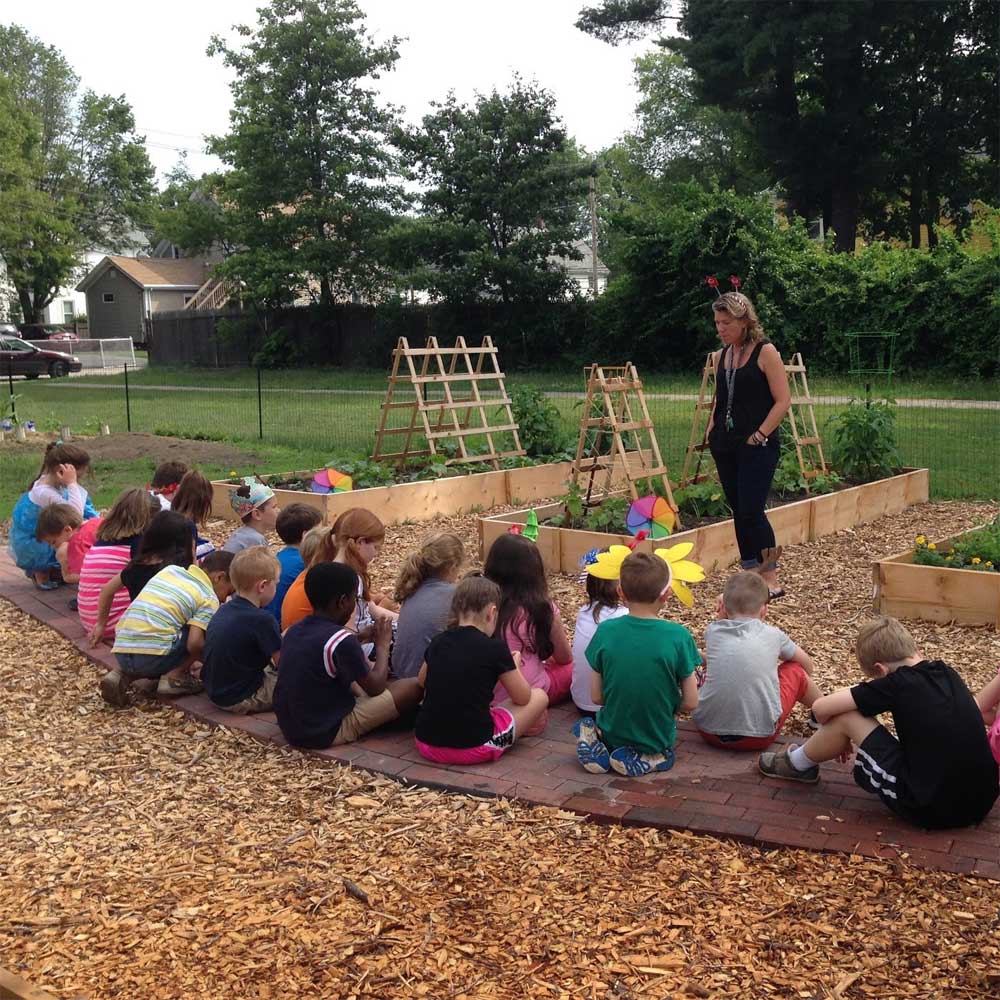 June 5th, 2017 at 6pm
June 5th, 2017 at 6pm
URI Pharmacy 170
What’s better than bringing lessons alive in an outdoor garden classroom!? This workshop for School Garden Mentors and school partners, will provide all with an opportunity to discuss, investigate and engage in activities aligned with curriculum standards with emphasis on NGSS. URI Youth STE[A]M Education Coordinator, Amy Cabaniss, PhD, will lead this workshop. You’re encouraged to bring along a favorite sample lesson if you wish to share.
School Garden Mentors are encouraged to bring a teacher or member of their school garden team. Please register in Volgistics.
Speaking Skills Training Session
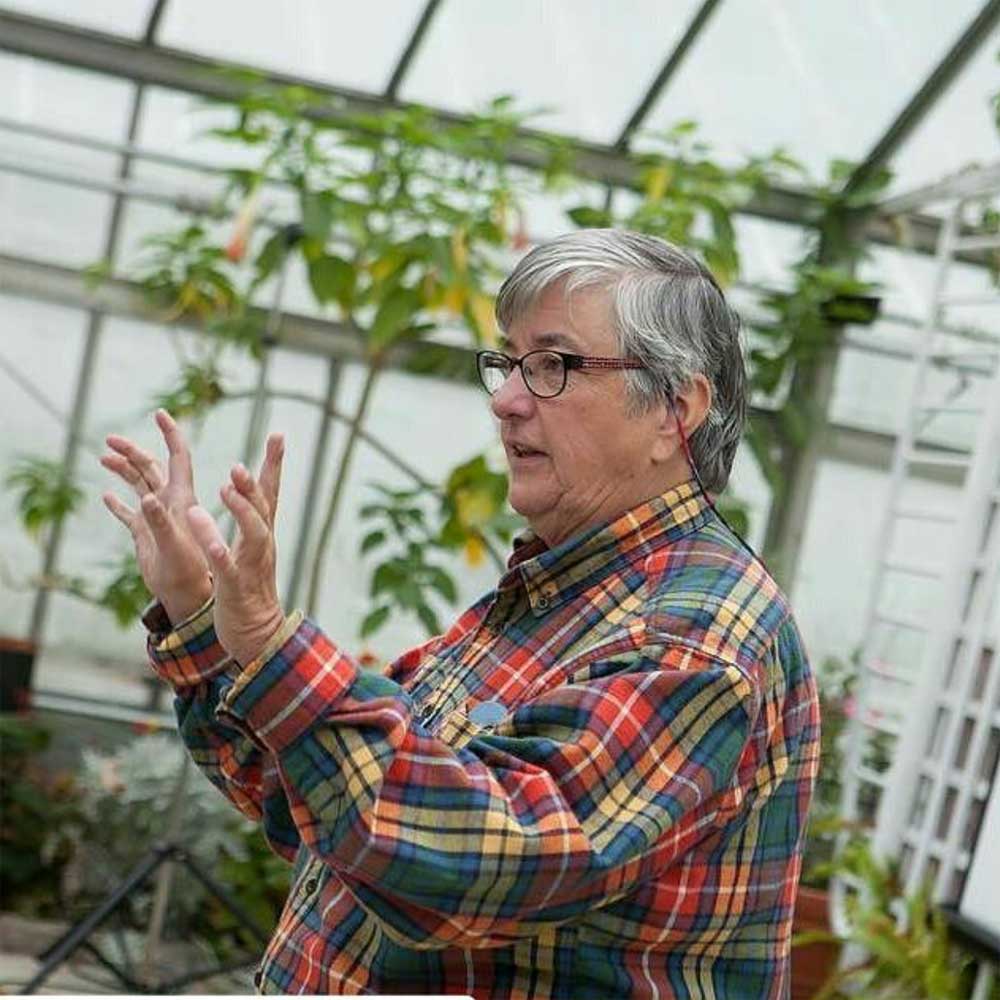 June 6th, 2017 at 6pm
June 6th, 2017 at 6pm
URI Pharmacy 240
Learn the skills you need to teach others as a Master Gardener volunteer. We’ll hear from some of our MG public presentation speakers about the best way to deliver information to the general public. If you like learning about a topic in-depth and sharing that knowledge with your community, this class is for you! Please log into Volgistics to register.
Private Well Water Workshop in Charlestown
Tuesday, June 20 at 6:00pm to 7:00pm
Cross Mills Public Library 4417 Old Post Road, Charlestown
In Rhode Island, private well owners are responsible for testing and maintaining the quality of their own well water. In order to provide residents with information on private well water testing, treatment, and maintenance, water quality experts from URI and the RI Department of Health will hold a free program on Tuesday, June 20, 2017 from 6:00–7:00 PM at the Cross Mills Public Library, 4417 Old Post Road, Charlestown, RI 02813.
“Workshop participants will learn about substances that can affect well water, why they are a concern, how to arrange for a well water test, and well water treatment options,” said Alyson McCann, with URI Cooperative Extension’s Water Quality Program. Following the well testing schedule developed by the RI Department of Health helps private well owners protect their family and identify any potential problems. We will review what to test for and when, where to have the water tested, and discuss some basic well maintenance tips.
Educational handouts and water testing kits from the RI Dept. of Health will be available for participants. Following the workshop, experts will be on-hand to answer additional questions. Workshop attendees will be able to return their water samples and payment at the Cross Mills Public Library on Wednesday, June 21, 2017 at 8 AM and URI will transport them to the State Health Lab for testing.
Gardening is Murder at The Weaver Library
Monday, June 5 at 7 pm
Weaver Library, East Providence
Neal Sanders presents Gardening is Murder, a laugh-out-loud presentation on gardening, at the Weaver Library on Monday, June 5, 2017 at 7pm. Developed as a talk from the “spouse’s point of view,” the presentation is filled with humor and insight from someone who gardens less from an abiding love of horticulture than for the love of a spouse. Sanders dispenses good horticultural advice, debunks bad advice, and leaves audience members with a better appreciation of what is going on in the mind of their helpmates.
An author of eleven mysteries, several of which use garden club settings or horticultural plots, Sanders also writes ‘The Principal Undergardener’ blog. Books will be available for purchase and signing from the author.
Weaver Library is located at 41 Grove Avenue, East Providence, RI 02914. Questions? Call 401-434-2453.
Hot Topics from the URI Consumer Horticulture Educator
 The following science-based articles may help you answer questions from the community. Rosanne Sherry, URI Consumer Horticulture Educator, recommends you read them to help sharpen your own gardening and educator skills! Please send comments or suggestions for articles to rsherry@uri.edu.
The following science-based articles may help you answer questions from the community. Rosanne Sherry, URI Consumer Horticulture Educator, recommends you read them to help sharpen your own gardening and educator skills! Please send comments or suggestions for articles to rsherry@uri.edu.
TICKS!!
Tick populations are high most likely due to the past two mild winters and callers are reporting finding ticks on themselves and other family members as well as pets. Of the two tick species most commonly found in southern New England, the tiny deer tick is of most concern because it can carry several diseases including Lyme disease, human babesiosis and human granulocytic anaplasmosis all of which can lead to serious health problems if untreated. Find out how to protect yourself and where to get ticks tested for these diseases at: http://www.tickencounter.org
Clover seeding
An interesting question has been passed around and finally was solved. The question is the use of clover in a solar farm. This did not come through the hotline and if it had would have been forwarded on to Dr. Brown. The full question and answer are below.
The question:
My company is installing several small solar energy sites around RI. We are evaluating seed mix alternatives that are environmentally friendly and will minimize the need for maintenance. I was hoping you could provide me with some advice.
- Our contractor has recommend a fescue mix (25% Henry Hard Fescue, 25% Azure Sheeps Fescue, 25% Ambrose Chewings Fescue, and 25% Creeping Red Fescue). He claims this should grow low and dense and require 1-2 annual mowings…does this sound credible?
- I was thinking about having them add some White Dutch Clover to the mix as that has a tendency to grow low and thick. Are there any concerns about using this variety in Rhode Island?
- Would I expect the clover to eventually dominate the fescue?
- Would the presence of clover likely further minimize the height and/or mowing frequency?
The Answer:
 The fescue mix is what I would recommend also. You can add white clover to the mix – no more than 10% of the total seed mix by weight. The presence of clover will not affect the height of the grass or the mowing frequency. Over time the clover will form patches, so you will not have a uniform appearance to the turf; I don’t know if that matters to you. I would recommend testing the soil pH – white clover does not tolerate pH below 5.5, while the fescue will tolerate pH as low as 4.5.
The fescue mix is what I would recommend also. You can add white clover to the mix – no more than 10% of the total seed mix by weight. The presence of clover will not affect the height of the grass or the mowing frequency. Over time the clover will form patches, so you will not have a uniform appearance to the turf; I don’t know if that matters to you. I would recommend testing the soil pH – white clover does not tolerate pH below 5.5, while the fescue will tolerate pH as low as 4.5.
If the topsoil was stripped from your sites as part of the construction process for the solar energy facility, I would strongly recommend that you incorporate yardwaste compost before seeding. Our subsoils (and most of what is sold as screened loam) are very low in organic matter, which means that they do not hold water and nutrients well. Adding compost will improve the soil’s ability to support the grass and clover, leading to better performance long term.
You have missed the window for seeding this spring, unless you have the ability to irrigate at your sites. While fescue does not need irrigation once established, it does require consistently moist soil for 6-8 weeks while the seeds germinate and the seedlings grow roots. I recommend waiting until mid-August to seed. If erosion and/or weeds are a concern over the summer, you could spread the compost as a mulch now, and then mix it into the soil just before seeding in the fall.
Dr. Rebecca Nelson Brown
Associate Professor of Plant Science
Lily Leaf Beetle info
They are out. The adults are coming out now, will mate and lay eggs, then you will see the larvae. Both adults and larvae eat the leaves. Neem or Spinosad products are the best for quick control. But remember the parasitic fly is spreading. Let nature help you get the problem under control.
https://web.uri.edu/biocontrol/lily-leaf-beetle/
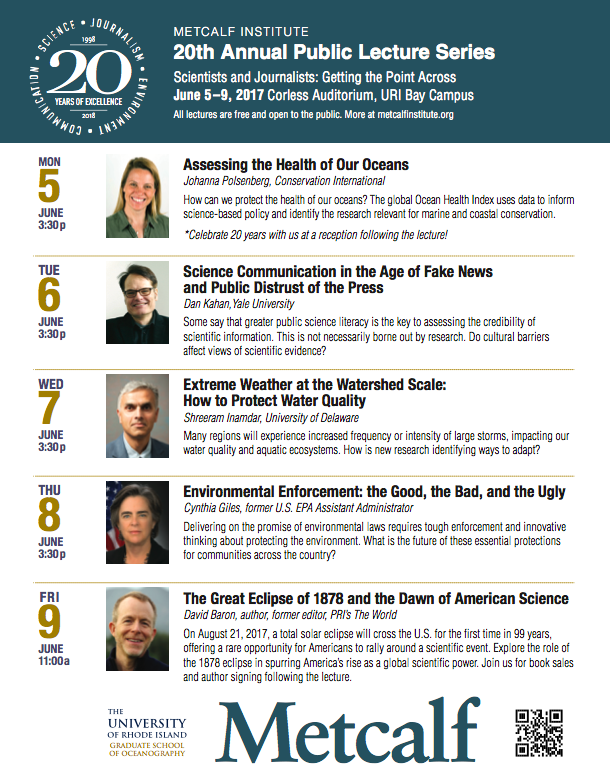
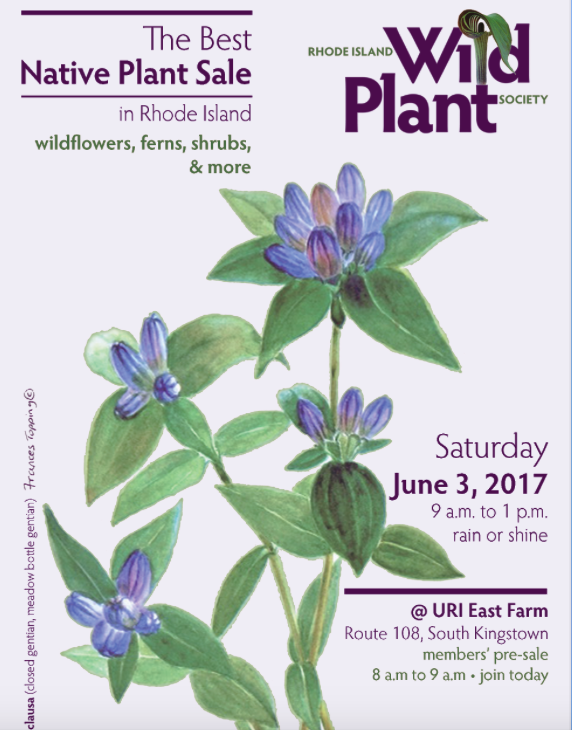
 Home
Home Browse
Browse Close
Close Events
Events Maps
Maps Email
Email Brightspace
Brightspace eCampus
eCampus


